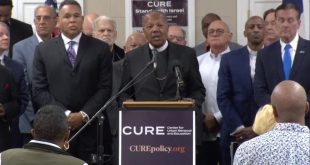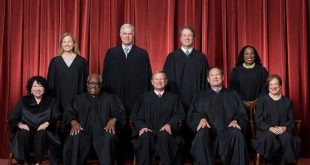Maine allows families who don’t have access to a local government school to participate in a tuition assistance program to choose alternative private schools as long as the money isn’t used for religious teaching. The requirement effectively bars families who choose religious schools from participating in the program.
The Institute for Justice and the First Liberty Institute represent three families who have challenged a law that bars towns in Maine from paying money to families who choose such schools. The U.S. Supreme Court has heard arguments in Carson v. Makin. The issue:
Whether a state violates the religion clauses or equal protection clause of the United States Constitution by prohibiting students participating in an otherwise generally available student-aid program from choosing to use their aid to attend schools that provide religious, or “sectarian,” instruction.
Virginia has gone from blue to red, and with this change comes a respect for the U.S. Constitution’s First Amendment freedoms. Under former Gov. Ralph Northam, the state submitted an amicus brief in Carson supporting the law and opposing the families. But the new administration supports religious freedom and the right of parents to use money for the religious schools of their choice. Virginia has reversed its previous stance.
From the letter (PDF) Virginia’s attorney general’s office submitted to the Supreme Court last week:
Following the change in Administration on January 15, 2022, the Attorney General has reconsidered Virginia’s position in this case. The purpose of this letter is to notify the Court that Virginia no longer adheres to the arguments contained in its previously filed brief. Virginia is now of the view that Maine’s sectarian exclusion discriminates against religious schools in violation of the Free Exercise Clause.
Fox News reported last December that the conservative justices (including Chief Justice John Roberts) appeared to oppose Maine’s discriminatory law in oral arguments:
“You’re discriminating among religions based on their beliefs,” Chief Justice John Roberts said, pointing to how if one religion taught the same way as a public school but a different religion taught differently, the first would be able to participate in the program but the other would not.
“So it is the beliefs of the two religions that determines whether or not the schools are going to get the funds,” Roberts said. “And we have said that is the most basic violation of the First Amendment religion clauses for the government to draw distinctions between religions based on their doctrine.”
The retiring Justice Stephen Breyer supports the law but admitted that it is “discriminatory against religion.”
Do you like this post? Sign up for more!
 CURE News and Clergy Blog News and Commentary for Christians
CURE News and Clergy Blog News and Commentary for Christians




All Schools Curriculum should be available for parents and authorities to be aware of what Our Children are being taught. I wouldn’t want Our Taxes going to a School that preaches Jihad against non-believers.
How is it that because parents want to send their children to a school which teaches religious principles along with all the rest of the subjects cannot participate in Maine’s tuition assistance program? Does the state then refund that portion of the tax which is used to fund schools to those parents who choose to send their kids to a non-public school? All citizens pay taxes, I presume, which includes monies for schools. Therefore all should be eligible for that program. Maine should be made to pay and add back funds as well.